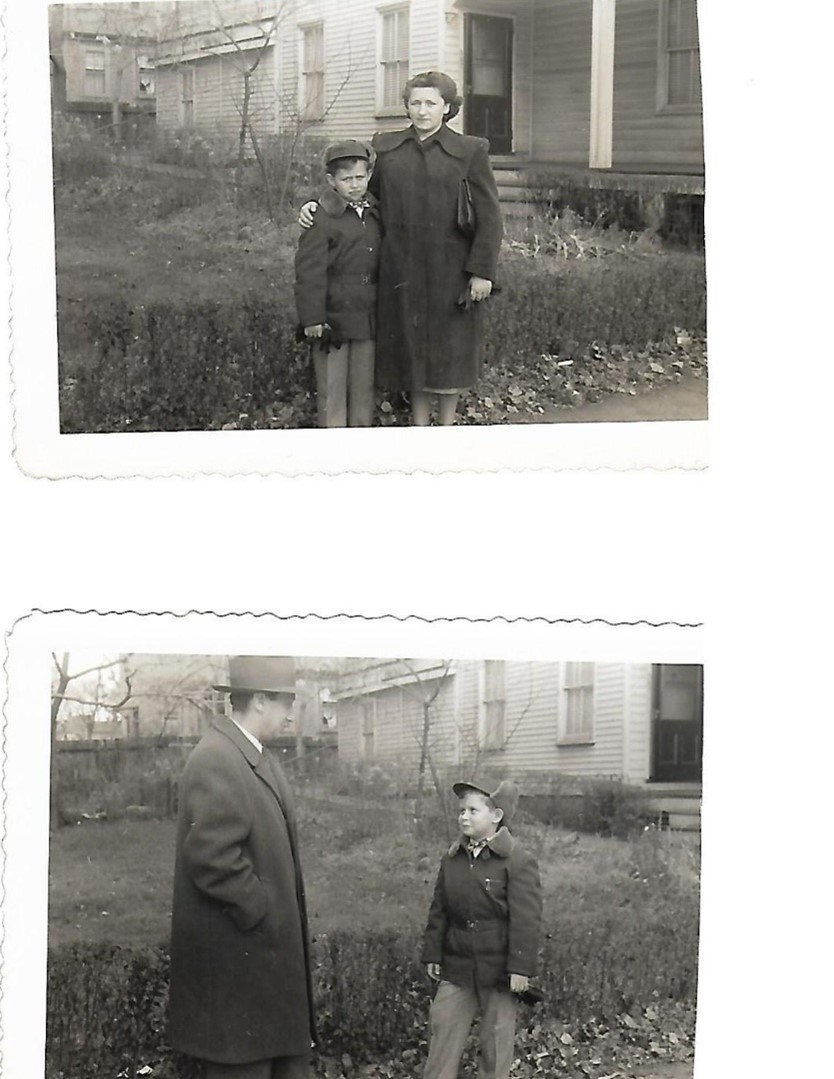|
GayleBorden
Gayle: Tell me about the Jewish identity you were brought up with. Did your family practice any kind of Judaism? What happened over the years through the Holocaust? How did you feel being Jewish in the Holocaust?
Mina: My home was not a religious home. It was a traditional home; we did not practice religion. We didn’t go to shul. My father and mother used to go to shul only on the High Holidays. Sometimes, I visited my mother during the holidays in the synagogue. We didn’t belong to any synagogue but my mother kept a kosher home. During the war, of course, it was difficult to get kosher meat, so whatever she was able to get she bought for us to eat.
Gayle: What age were you when the war broke out?
Mina: When the war broke out, I was 27. I was already married by that time. The day before, we were on vacation. It was a resort place, near the border of Romania and my husband wanted to cross the border. We could make one step forward and we would be in Romania. I didn’t want to leave my family behind, so we went back home with the next train in a few hours. [The bombing started right away]. Our town was not bombed too much because there were many Germans living in our town of Lodz. [Early in September], the Germans came to town and started restrictions. Every day there were different restrictions for the Jews. You should not go out in the evening. They used to invade our homes and take the furniture, leaving empty houses. They said that the Germans would get rid of all of the men, so the men in my family left to go to the East. They were bombed along the way. My uncle was the first person in my family to be killed. After maybe ten days, the rest came home.
Gayle: At this point how did you feel about being Jewish? Were you angry? Did you ever say “Why us?”
Mina: I was not angry. The Jews were always the victims, not only in my life. You could ask a hundred times why. Why were the Jews always the victims? We were not liked. Something is happening and they always try to find someone [to blame]. Every day there were new restrictions. There was a curfew. They were taking men and women off the street. We could not go to another town. On the day they said we had to wear the Jewish star on our sleeve, we decided to leave Lodz, to get to the side where the Russians were. We went to Warsaw and got in touch with someone to take us across the border.
Gayle: How did you manage that?
Mina: People like to make money always. They were Polish guys who went into the business. They knew the way to go across the border to a river where there was not a lot of water so we could just walk through. I said goodbye to my family, which was the worst part, but I had an obligation to my husband and I was afraid for his life. We were very naïve. I thought the war would take one month, two months, three months. I will come back.
[We were captured by Germans and by Russians but they let us go] We wound up on the Russian side [of the border] and we reached the town we wanted.
Gayle: Were you afraid for your life again?
Mina: No, when we were on the Russian side we were never afraid of danger of life. The Russians had difficulty of life: there was no food, necessities of life you could not get. But it was never danger of life. When you were with the Germans, every minute you were afraid that they would come and kill you. When I was away, I wanted very much to go back because we missed the family, but there was not a possibility to go back.
Gayle: I’m trying to understand where people turn to. Did you turn to Roman [your husband]? Did you turn to some spirit? Did you talk? What did you do to keep you going?
Mina: I just wanted to change into a bird, to fly back home. I asked people I met “what’s going to be?” There was no answer to it. Such chaos. But you know, you always lived with hope that maybe someday the war would come to an end and the family would survive.
Gayle: Did any part of your feeling about being Jewish change, after the war or during the war, from how you felt before the war?
Mina: I didn’t turn to religion after the war. I always knew that I am a Jew. I never wanted to get away from my religion. Many people changed their faith. I would never do this. I thought if I survive, I will survive Jewish. If not, I will perish Jewish.
Gayle: Now, years have gone by and you have a son who has become active in Judaism.
Mina: I am glad that he believes in something. Maybe he is so active because of what happened to the Jews during the war. Maybe this was the influence on him.
Gayle: Why did you survive and your family didn’t? Were you thankful you survived?
Mina: I feel just lucky. My husband made me survive; I never would have without him. There were times I was sorry I survived. But later, when times go on and you have your life and you have a child, your way of thinking is changing.
|

